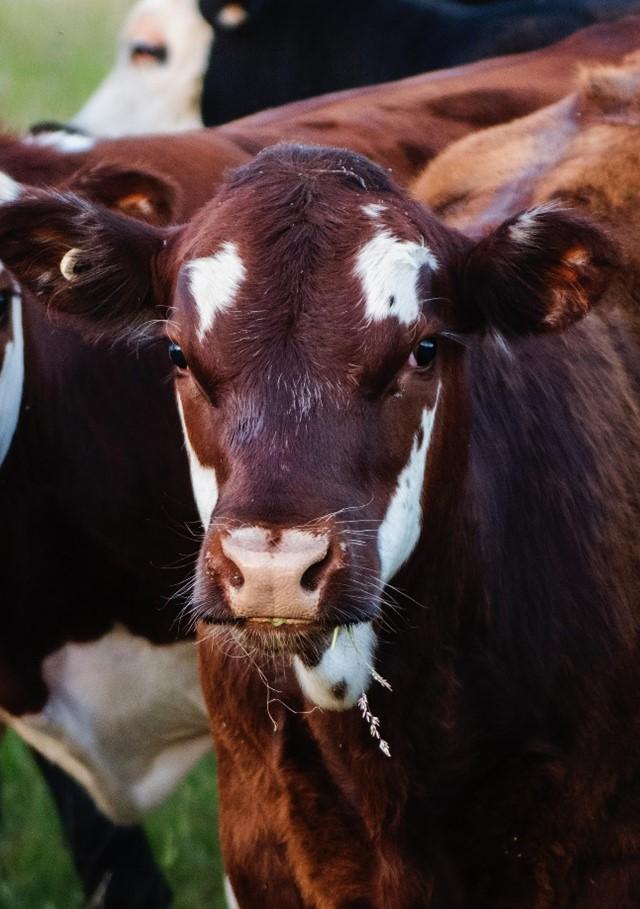
Welcome to the November 2023 edition of The Spark, SEFARI Gateway’s newsletter, a monthly update on the latest research developments from the Scottish Government’s Environment, Natural Resources and Agriculture (ENRA) strategic research programme. The ENRA Research Portfolio provides evidence for policy and practice across environment, climate change, biodiversity, land use, agriculture, food, and rural community agendas.

ENRA Scientists working with SG on Rural Payments Scheme and Agricultural Reform Programme
ENRA scientists worked with officials to co-construct the research needed to develop the new Rural Payments Support Scheme. The payments scheme will support Scotland’s agriculture and replace the EU’s Common Agricultural Policy following BREXIT.
Since the UK’s exit from the EU, the Scottish Government is developing its own unique approach to agricultural policy that supports sustainable food production and tackles climate change and nature restoration, Scotland's Rural College (SRUC), along with partners the James Hutton Institute, Pareto Consulting and ICF were commissioned by ENRA to provide Economic Advice and Related Services to Support Development of a New Rural Support Scheme for Scotland (ref: RESAS/005/21).
 |
Breeding Climate Smart ‘Scotch Beef’ In collaboration with the world-leading breeding company Genus plc and the Universities of Edinburgh and Aberdeen, ENRA funded scientist’s award-winning research showed that efficient beef production with less methane emissions is achievable using a newly developed breeding strategy referred to as microbiome-driven breeding. This strategy can potentially result in: • mitigation of methane emissions, • improvement of feed conversion efficiency, • is cost-effective because it avoids expensive measurements used in other approaches. • and can simultaneously be applied for improvement of animal health including reducing antimicrobial resistance and welfare attributes, as well as meat fatty acid profiles ensuring healthier human diets. |
Scotland’s Food Safety and Mycotoxins
ENRA funded research addresses Food Standards Scotland’s Strategy for 2021-2026 to identify the main risks to consumers from foodborne illness and food safety.
One area of significant concern is mycotoxins which are a group of naturally occurring chemicals produced by certain moulds. They can grow on a variety of different crops and foodstuffs including cereals such as oats.
Mycotoxins can cause a variety of adverse health effects in humans including cancer, kidney and liver damage, gastrointestinal disturbances or suppression of the immune system.
Consumers are very frequently exposed to mycotoxins through their diet, but usually the level of exposure remains within the safe limits. However, adverse weather conditions and changing climatic conditions may increase the fungal load in crops. It is therefore, very important to safeguard the levels of exposure during years of high fungal disease pressure.
ENRA funds two mycotoxin research projects. One project has already assessed the effectiveness of onsite tests for mycotoxins.
The research has identified two solutions to mitigate the mycotoxin risk in in oat crops: low cereal intensity within a crop rotation and organic production. These offer practical solutions for growers.
In addition, evidence from this study has been directly submitted to the Food Standards Agency (FSA) to inform their ongoing risk analysis for T-2/HT-2 toxins in cereals to assess consumer exposure and inform any future risk management advice for these important mycotoxins. For more information go to SEFARI Gateway website.
|
Research identifying intervention points to prevent spread of antimicrobial resistance (AMR) The rise and spread of AMR is creating a new generation of ‘superbugs’ that cannot be treated with existing medicines. ENRA funded research is investigating the flow of AMR within the environment, and to humans, to identify intervention points. SEFARI scientists are working on seven projects addressing this issue in Scotland. Between them they are assessing the distribution of AMR genes on farms amongst pigs, poultry, cattle, sheep and deer, in soils and water following different fertilisation regimes, and in wildlife samples. The data gathered will be fed into mathematical models that will enable us to assess the potential impact of different farming practices on the spread of AMR and pathogens to humans - thus identifying intervention points. This research addresses the UK National Action Plan for AMR and the Scottish One Health Antimicrobial Use and Antimicrobial Resistance (SONAAR) programme, to improve understanding (and minimise) how AMR spreads between and among humans, animals and the environment. |
 |
Public Health Information on the Microbe Safari
COVID 19 was a stark illustration of the importance of public health information. ENRA funded researchers with SEFARI Gateway support have created Microbe Safari, an interactive website exploring the diversity of microbes that are related to gut health, food safety, food production and the environment.
The Microbe Safari website shows the interconnectedness of microbe issues such as the relationship between antibiotic use on farms and antibiotic resistant microbes in your gut, and how environmental factors, including climate, may influence food safety. The site also allows us to highlight that a more balanced and nuanced understanding of messages that can often appear conflicting, particularly relating to food safety.
 |
Latest from SEFARI Gateway Scotland’s Biodiversity Strategy; Costs and Investment Plan SEFARI Gateway has commissioned research for the Scottish Government to assess the costs and funding options for the Scottish Biodiversity Strategy (SBS) Delivery Plan. The Fellowship will help inform for example, where public finance is most needed, or where markets could be scaled up to accelerate progress towards the SBS targets. The report will be delivered by April 2024. |
 |
Food-borne illness in the Elderly with Food Standards Scotland
Working with Food Standards Scotland (FSS), SEFARI Gateway has commissioned research into food-borne illnesses in the over 65s. Future communications by FSS will use the research to deliver informed, targeted and tailored advice to those more vulnerable to food borne illnesses. Preliminary research will be published in March 2024. |
Blogs
Find out about:
- Everyday circularity - only a small proportion of the materials of products consumed in Scotland are ‘cycled back’ into use in the economy,
- A novel way to portray the serious challenges of water and land management,
- Scientists are often making the news, so read about a SEFARI Gateway funded training session on how to tackle TV interviews,
- And our reflections on this year’s Arable Scotland.
We’d love to hear from you and receive your feedback on how we can improve our newsletter. Please contact us at info@sefari.scot with your suggestions.
A pdf version of this newsletter is also available here.
Scotland is playing a central role in developing environmental solutions to the global climate and nature crises, and the Scottish Government response is based on the strongest possible scientific evidence. The Environment, Natural Resources and Agriculture research programme is key to achieving this.